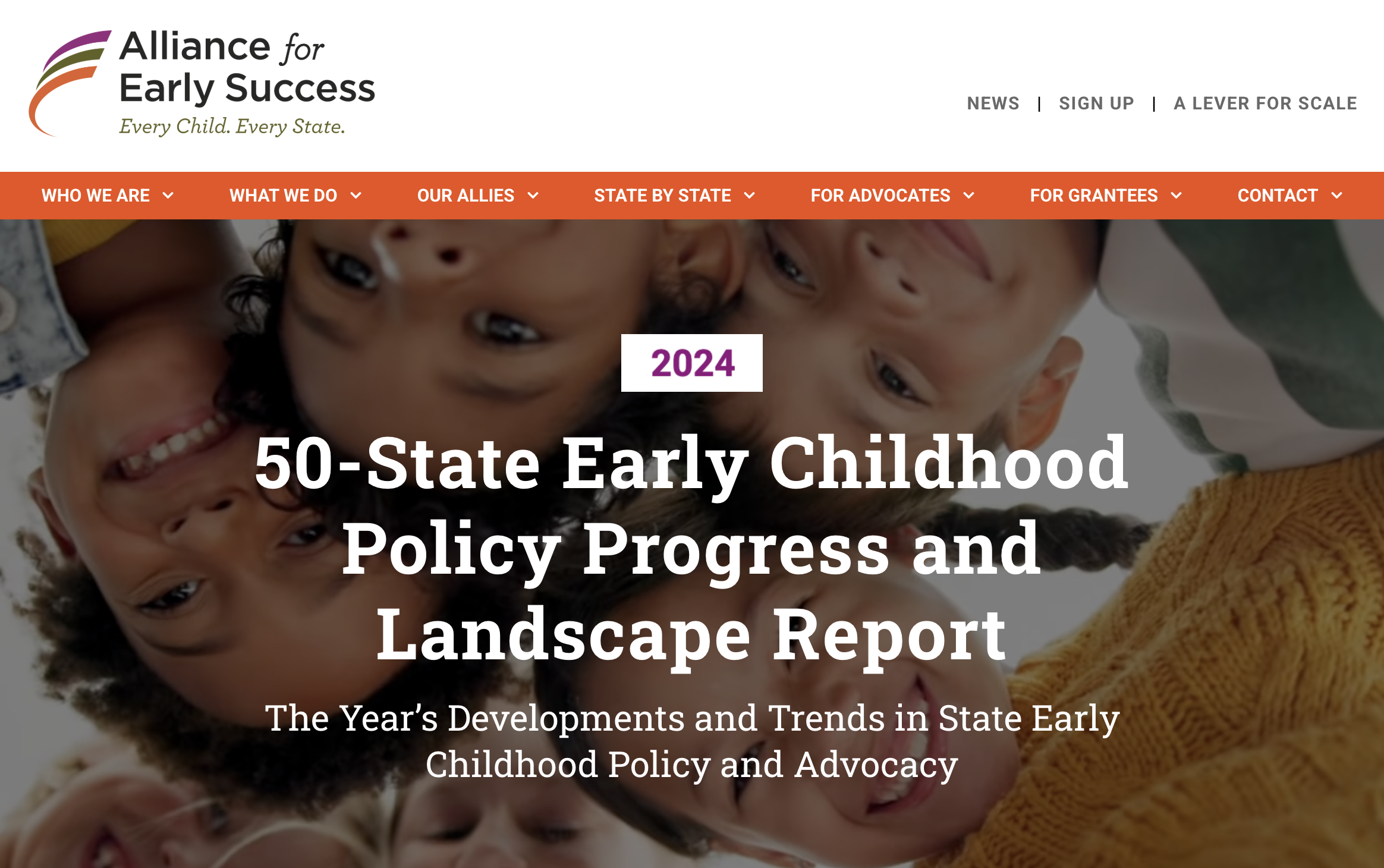Check out the good news: in its 50-State Early Childhood Policy Progress and Landscape Report, the Alliance for Early Success documents 2024’s early childhood victories and reflects on the potential for more wins in 2025.Â
The Alliance asked its grantees to share legislative highlights, the report says, “and the results show wins in states of all different sizes, regions, and political landscapes—showcasing the effectiveness of tailoring advocacy to conditions on the ground and nurturing powerful coalitions.â€
“Alliance state grantees shared highlights from the year in the broad areas of maternal and child health, early care and education, and family supports. Whether it was a new policy passed, an increase in funding, or an improvement to an existing policy, these shifts will improve lives for young children and their families.â€
The report’s State Policy Landscape Profiles provide encouraging details:
• In Massachusetts: “The Department of Early and Education and Care budget sustained Commonwealth Cares for Children (C3) child care operations grants with state funding totaling $475 million.â€
• In Alabama: “A new child care tax credit (HB 358) was part of the governor’s bill package called “Working for Alabama.†This bill will help incentivize employers to provide a child care or child care benefit for their employees with young children, provides a facility tax credit for licensed providers based on their QRIS rating and the number of children under six receiving subsidies, and provide a grant for licensed non-profit providers.â€
• In Utah: “During the 2024 legislative session, advocates passed HB 461, which makes child care workers eligible for child care subsidies regardless of income, inspired by Kentucky’s successful initiative. By providing subsidies, this legislation helps child care owners cover the costs of offering child care benefits and allows staff to retain more of their earnings. Although the implementation of the bill is contingent on federal funding approval, we are optimistic that the Office of Child Care could begin its rollout as early as January 2025.â€
• And in New Mexico: “Senate Bill 153 increases distributions from the Early Childhood Education and Care Fund (ECCE Fund) to $250 million, providing $95 million more for programs such as child care assistance, NM Pre-K, support for the ECCE workforce, maternal and infant health services, and Tribal facilities. This win was important because the ECCE Fund, created in 2020 with $300 million, had ballooned to $2.2 billion by 2024, due to high oil and gas revenue. While advocates were pleased with the growth of the Fund, lawmakers had expressed concern that the Fund was too large and attempts had been made to siphon from it for programs for other purposes. SB 153 helped ensure that ECCE services not only received more funding in the short-term, but that more of the Fund’s revenue would be earmarked for ECCE services into the future.â€
This legislative momentum helps boost states’ potential for achieving more progress this year, the report says, noting:
“As we look to the upcoming legislative sessions in 2025, survey results show that many policymakers—governors, state legislators, and state agency administrators—are supportive of improving early childhood policies, making the climate ripe for additional wins.â€
To keep up with how advocacy is leading to policy growth, check out the Alliance’s website and sign up to receive Alliance information on new early childhood policy resources and events.



